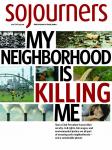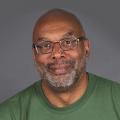FAITH-BASED COMMUNITIES have been at the forefront of environmental justice work since the phrase first came into use. In 1987, the United Church of Christ’s Commission for Racial Justice published the report Toxic Wastes and Race in the United States. The report—the first of its kind—documented the connection between the siting of hazardous waste sites and the race of the communities where they were located.
For Aaron Mair—an epidemiological-spatial analyst with the New York State Department of Health—environmental justice organizing began in 1984 when he and his family moved to the Arbor Hill neighborhood of Albany, N.Y. The 80-percent-black neighborhood was home to an incinerator that resulted in two of his daughters having upper-respiratory health issues, according to Mair. The neighborhood’s toxic air prompted Mair to begin organizing his community to get the incinerator shut down.
In May 2015, Mair was elected as the first African-American president of the Sierra Club, a national environmental organization with more than 800,000 members. Raven Rakia, a freelance journalist and Grist fellow, interviewed Mair for Sojourners in February.
Raven Rakia: What’s the significance of your becoming the first black president of the Sierra Club?
Aaron Mair: I didn’t start out to make history with the Sierra Club. I started out to make history as an environmental justice activist by elevating the voice of communities of color with regard to equal treatment and protection under the law.
If anything, I was just being a consistent activist, as part of my heritage. I come from a long line of civil rights, voting rights, and union labor rights activists. My father was a union activist and labor shop steward with the United Auto Workers in Tarrytown, N.Y. He was always active with regard to mobilizing and organizing the family, the population, and his mantra was: No matter where you live, as a black man you have to be part of an organization.
When you were working against the incinerator in your community, your first encounter with Sierra Club was a little less than welcoming. Why did you persevere with that relationship?
As a low-income minority community, we used the strategies of the civil rights movement—like protesting and boycotting—which led to the incinerator being shut down.
The next level of organizing was about holding the government and the polluters accountable for poisoning the community—once you peel an onion, you have other layers underneath. Once we got rid of this incinerator, the issue of the harm and the legacy of pollution that the incinerator had left behind remained. How do we hold people accountable? Who is going to clean it up? Who’s going to deal with the families that are impacted?
Who do you turn to in building that alliance?
While we were initially rebuffed [by the executive committee of the local Sierra Club chapter], activists within the Sierra Club at the immediate grassroots level did not turn their backs on us. The handful that came back to us extended the friendship and, more important, the organizing tools that helped us build a grassroots environmental justice organization.
When Dr. King was in jail in Birmingham, Ala., mainstream Christian organizations were telling him to chill out because there were other priorities and there was “a better way.” Then he wrote the letter from jail and swayed a lot of those Christian voices to come back and build solidarity. Our appeal from the “environmental justice jail” touched enough activists working with the Sierra Club, so that even though we did not have the formal organizational support, we did have local grassroots activist support, and that was pivotal in our fight against the incinerator.
Joining the Sierra Club [in 1999] was a logical strategic choice because they had the technology and the grassroots infrastructure to support us. Even more important, they had the capacity to change.
Why is it vital to engage people of color in work against climate change?
First of all, climate change is the 21st century issue. Right now, the argument in question is about species’ survival as the globe goes through this transformation due to anthropogenic impacts on the climate through burning fossil fuels. At the end of the day, whether it’s in the United States or in developing nations, especially in many coastal and island communities, we tend to be on the front lines. Many of the old, industrial areas of most nation states are on the coastal waterways. The large shipping ports are where the affordable housing, low-income housing, and public housing were often built. Therefore, mostly people of color live in those areas.
These communities also happen to be the places where they have the coal power plants or the coal ash ponds. So these communities are not only on the front lines of climate change, they’re also on the front lines of source pollution. The toxins are being burned, dumped, and disposed of in their back and front yards.
This is not some sort of distant reality for communities of color. They’re experiencing health problems in real time.
In order even to try to have a clean economy, we must have a decent living wage and gainful employment. If we’re going to be building the clean energy and clean technology that will liberate us and provide better health outcomes, we should not be settling for climate capitalists—this whole new sector industry that’s now coming in and pirating the moral crusade to save humanity. We have to be vigilant on two fronts: We must stop the combustion and burning of dirty fossil fuels, but we also must be part of the just transition where our people are treated fairly and are employed in that 100-percent clean-energy future.
Here’s why we need to have strong partnership with the NAACP and labor unions: If we don’t have our people registered and empowered to vote, those policy decisions that are detailing the rules and regulations for the clean energy future will be dismantled. We also need to have a hand in those solutions that will provide us new economic opportunities. Because the big money in politics that is undermining our democracy and profiting from putting us as canaries in the coal mine today will basically make us indentured servants to the production of the new clean-energy future tomorrow. We have to be vigilant.
What has been your engagement with the faith community when it comes to environmental justice?
My faith and my family’s faith guides me tremendously regarding our mission and our duty to protect our air, land, and water—but more important, all humanity in all God’s creation. I am the son and descendant of sharecroppers whose family still owns their land in a place called Travelers Rest in Greenville County, S.C. We never broke our link to the land, and we never broke our link to our family church: the Golden Grove Baptist Church in Travelers Rest.
The values of the book Genesis—of humanity’s role in protecting creation and protecting one another—has been part of my family’s religious creed. This particular book and this particular aspect of our life and our existence were critical in my formation. The book of Genesis points to people being stewards of God’s creation, and we cannot be stewards of God’s creation if we’re talking about burning every ounce of buried coal. If our role on earth is to be good stewards and to protect this planet, then right now we’re doing a very sorry job.
Where do you see faith-based groups and faith communities in the history of environmental justice?
When we talk about Dr. King and his assassination in Memphis, the critical point was that he was there at a [sanitation workers] strike, recognizing that men and women had a right to be respected as labor, to provide for their families. Few people know that that particular sanitation department in Memphis worked around one of the nation’s oldest and largest Superfund sites because they were dumping toxins and pesticides. These men were not only fighting for a living wage, but they were fighting for decent, humane conditions. King’s death was at the pinnacle of a labor rights and environmental rights struggle.
Labor, environment, civil rights—all these rights are tied together and allow us to live in a clean, sustainable, and healthy environment with decent, living wages and decent education. King recognized that. Society tries to distill him down to “I Have a Dream.” The man wasn’t dreaming. He said: I have rights. He didn’t die for a dream. He died trying to get us our basic equal rights and protection under the law.
Are we at a political turning point when it comes to climate change—given the EPA’s clean power plan and the talks in Paris?
Paris was the globe coming together and bearing witness that climate change is real and it’s caused by humans, and we have a chance of saving the human species and all species on the planet. The clean power plan, while imperfect, is a very significant step. But it needs to be made better. And we cannot do that by relying exclusively upon the president of the United States. We must all engage; we must all be in the game. Look at how people are being treated over water [in places such as Detroit, Flint, and Baltimore]; that can tell you what’s going to happen to black people under any condition.
Every church, every school, every institution, every scout troop, every choir—if you are trying to sing praise of God, planet, and community, you must be engaged in this movement.
The critical thing right now is that we all need to move beyond our silos. The church, by itself, is a silo. The environmental movement, in some areas, has become a silo. The environmental justice movement has become a silo. The labor movement has become a silo. We must now leave those silos behind and come to a common space to organize and strategize so that we can elevate our human condition.
Correction: In the print version of this interview, we wrote that grassroots organizing efforts in Albany were initially rebuffed “by Sierra Club staff.” It was actually the executive committee of the local Sierra Club chapter, which consists of non-staff volunteers. We apologize for the error.

Got something to say about what you're reading? We value your feedback!


